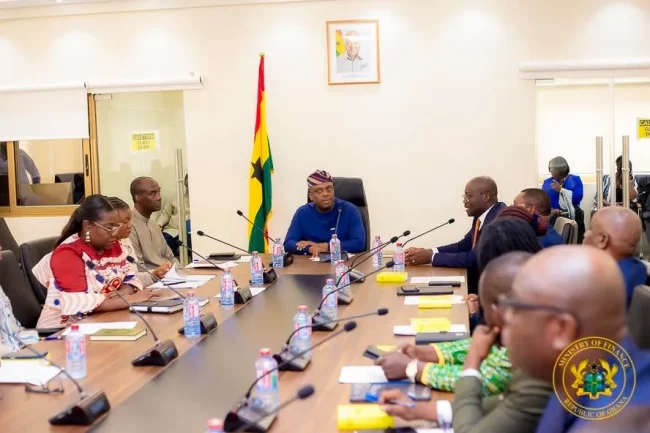
Ghana has taken a decisive step to transform its infrastructure development approach by inaugurating a new Public-Private Partnership (PPP) Committee focused on equitable risk-sharing and structured collaboration. The committee aims to redefine how critical projects are financed and managed amid growing fiscal constraints.
Deputy Finance Minister Thomas Ampem Nyarko highlighted the urgent need to leverage private capital, stating that “fiscal constraints necessitate private capital for critical projects,” marking a clear departure from past models dominated by government control.
Chaired by Finance Minister Dr. Ato Forson, the committee signals a firm break with unsustainable PPP practices of the past. Dr. Forson stressed that “future projects must prioritize accountability, inclusivity, and genuine risk-balancing,” underscoring the government’s commitment to more transparent and effective partnerships.
The committee boasts a high-profile membership, including Attorney General Dr. Dominic Ayine, Trade Minister Elizabeth Ofosu-Adjare, and National Development Planning Commission Director-General Dr. Audrey Smock Amoah. Technical expertise is provided by the Ghana Institution of Engineers and the Chartered Institute of Bankers, while political backing is strengthened by the presence of the Deputy Chief of Staff.
This initiative comes at a crucial time for Ghana, grappling with debt challenges that require innovative financing solutions. The renewed focus on transparency, value-for-money, and measurable outcomes reflects an ambition to align PPP projects with the country’s broader development goals.
Experts see the committee as pivotal in steering PPPs to support President Mahama’s industrial agenda under the NDC government. Success will depend on striking a delicate balance between harnessing private sector efficiency and safeguarding the public interest.
With this strategic move, Ghana aims to create a sustainable framework for infrastructure partnerships that can drive growth while protecting national resources.



